 The sci-fi novel I’m currently working on is coming along slowly but steadily. I’m planning to write a full update on those goals later on this spring, but for now I wanted to talk about picking character names.
The sci-fi novel I’m currently working on is coming along slowly but steadily. I’m planning to write a full update on those goals later on this spring, but for now I wanted to talk about picking character names.
I find it fairly easy to describe little things like what characters eat for dinner or how they’d react to a beautiful sunset if such a scene were somehow relevant to the storyline.
Picking names for them, though, is tough.
I can’t tell you all how many hours I’ve spent combing through sites that suggest names for human babies, pets, and/or Dungeons and Dragons characters in order to get as many different possibilities as I can. Google is probably thoroughly confused about what on Earth is going on in my household by now!
Names have all sorts of associations with them in general, from the naming fashions of certain decades or centuries to personal experiences a writer or reader may have had with someone who had a specific name.
Naming Trends
 If I read a blurb about contemporary characters with vintage names that fell out of fashion a century ago, I’d generally expect their story to be set in an era when those names were more common or for the plot to give hints about why these characters were given such old-fashioned names.
If I read a blurb about contemporary characters with vintage names that fell out of fashion a century ago, I’d generally expect their story to be set in an era when those names were more common or for the plot to give hints about why these characters were given such old-fashioned names.
A few years ago, I noticed a surge in young adult novels that gave their protagonists names that are very rare for contemporary teenagers. The plots themselves were well done, but I found myself getting so caught off-guard by teenagers who had names that I’d previously only seen on gravestones or room tags in nursing homes.
With that being said, I have an older relative who was given an old-fashioned name they didn’t like at all when they were young. Skip ahead a few generations, and that name became wildly popular once again. So the fashionability of a name definitely can change.
Personal Experiences
 Talking about naming trends doesn’t even begin to take account for all of the positive and negative associations we’ve all formed based on our experiences with people who had or who have certain names. (No, I don’t have any strong opinions about the name Wilbur. I simply liked this stock photo).
Talking about naming trends doesn’t even begin to take account for all of the positive and negative associations we’ve all formed based on our experiences with people who had or who have certain names. (No, I don’t have any strong opinions about the name Wilbur. I simply liked this stock photo).
When I was a freshman in high school, my district hired a new music teacher whose only previous experience with someone called Lydia had not been a positive one. She didn’t go into detail, but she eventually mentioned something about her opinion of this name improving quite a bit based on her good experiences with me as a student.
There are a handful of names I’ve formed unpleasant relationships with due to past experiences I’ve had with people who had them. I’ve steered away from using them in any of my stories, and I think that trend is going to continue for the foreseeable future.
On the other hand, I’ve met some people who are so lovely that I’m eager to use their names in stories when possible. I still don’t know what the etiquette of this is, but I’ve found myself asking a person or two for permission before using their names even though the characters I’m creating otherwise have little or nothing in common with them.
But Does It Fit the Character?
 Even after all of this research, you still have to figure out if a specific name actually fits the character it was intended for.
Even after all of this research, you still have to figure out if a specific name actually fits the character it was intended for.
One of the wonderful things about creating characters is how unpredictable they can be. I’ve had some characters who lean into their names right away and others who don’t quite fit the first half-dozen names I test out on them.
If you’re not a writer, know that these kinds of experiences are common. Just because a writer comes up with a character doesn’t mean that we have control over how that character behaves!
A few times a week I see updates from fellow writers who were surprised by what their creations do. It’s quite common and can be pretty funny in retrospect if you have a good sense of humour about it.
If you’ve ever had to name a character, what have your experiences been?


 The lines between these genres has only seemed to grow fuzzier over time. These days it’s becoming rare for me to find a book in either genre that doesn’t contain any elements from the other one.
The lines between these genres has only seemed to grow fuzzier over time. These days it’s becoming rare for me to find a book in either genre that doesn’t contain any elements from the other one. Yes, there already have been novels published about how humanity might fare as Earth’s climate continues to warm up in the near and distant future.
Yes, there already have been novels published about how humanity might fare as Earth’s climate continues to warm up in the near and distant future.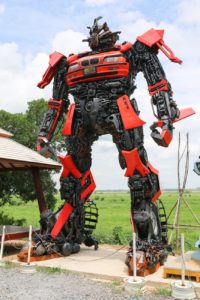 You might think I’m joking about this, but I’m not. This is how the last couple of days have been for me.
You might think I’m joking about this, but I’m not. This is how the last couple of days have been for me. Today is Family Day for those of us who live in Alberta, British Columbia, Ontario, New Brunswick, or Saskatchewan. Family Day was first observed in 2007 in New Brunswick, and it was created in order to give people a paid day off in February to rest and spend time with their families.
Today is Family Day for those of us who live in Alberta, British Columbia, Ontario, New Brunswick, or Saskatchewan. Family Day was first observed in 2007 in New Brunswick, and it was created in order to give people a paid day off in February to rest and spend time with their families.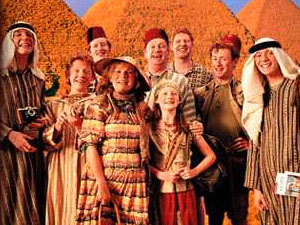 The Weasley Family from J.K. Rowling’s Harry Potter series.
The Weasley Family from J.K. Rowling’s Harry Potter series. 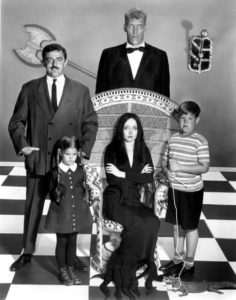 When I was a kid, my family wavered between having a TV and taking breaks from living with one. When we did have a TV, it was common for us to only be able to watch the channels that could be seen for free if you had an antenna and the wind was blowing the right way. (This is only a partial joke. The weather really could influence what channels we could get on stormy days from what I recall!)
When I was a kid, my family wavered between having a TV and taking breaks from living with one. When we did have a TV, it was common for us to only be able to watch the channels that could be seen for free if you had an antenna and the wind was blowing the right way. (This is only a partial joke. The weather really could influence what channels we could get on stormy days from what I recall!) Once my family got a television, (temporarily) signed up for cable service, and began watching more contemporary programs, I quickly learned which show I enjoyed the most: The Simpsons!
Once my family got a television, (temporarily) signed up for cable service, and began watching more contemporary programs, I quickly learned which show I enjoyed the most: The Simpsons!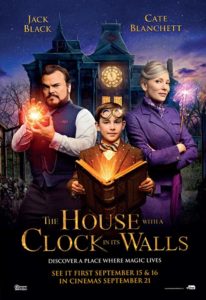
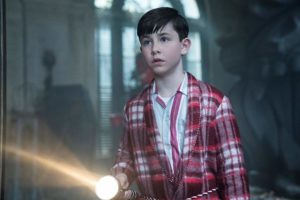
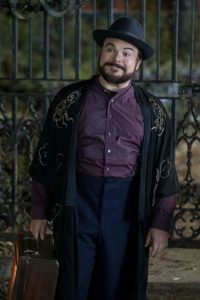
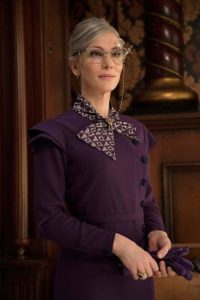
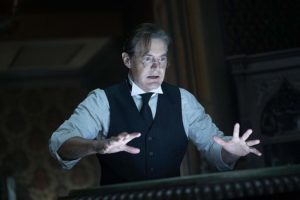
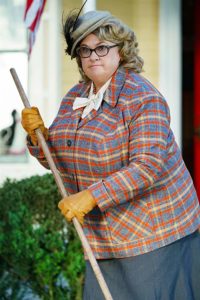

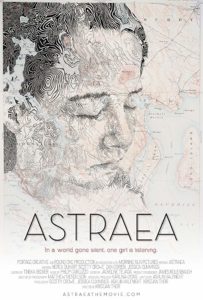 Astraea is a 2016 film that is set in a slightly futuristic version of what used to be the United States. The main character, Astraea, is a young girl living in what’s left of human society after an epidemic killed off a huge percentage of the population. She’s convinced that their brother and grandmother are still alive, and tries to convince her older half-brother, Matthew, to travel around North America in search of them.
Astraea is a 2016 film that is set in a slightly futuristic version of what used to be the United States. The main character, Astraea, is a young girl living in what’s left of human society after an epidemic killed off a huge percentage of the population. She’s convinced that their brother and grandmother are still alive, and tries to convince her older half-brother, Matthew, to travel around North America in search of them.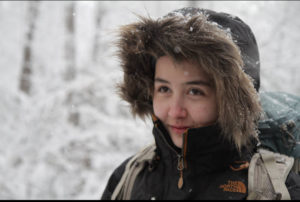
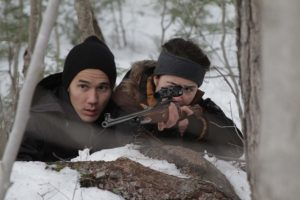
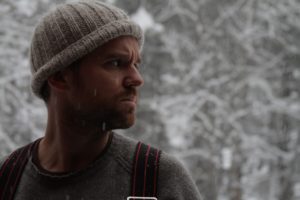
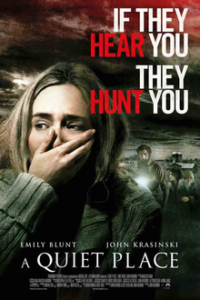 A Quiet Place is an American post-apocalyptic thriller that was released on March 9, 2018. It’s set in a near-future version of Earth in which sightless monsters have taken over the entire planet. Where these creatures came from is unknown, and their skin is so thick that it cannot be pierced by bullets. The only way to being detected by them is by remaining perfectly quiet twenty-four hours a day.
A Quiet Place is an American post-apocalyptic thriller that was released on March 9, 2018. It’s set in a near-future version of Earth in which sightless monsters have taken over the entire planet. Where these creatures came from is unknown, and their skin is so thick that it cannot be pierced by bullets. The only way to being detected by them is by remaining perfectly quiet twenty-four hours a day.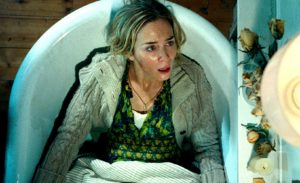

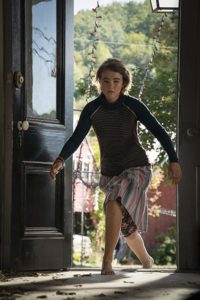
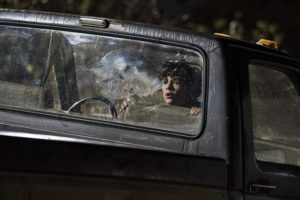
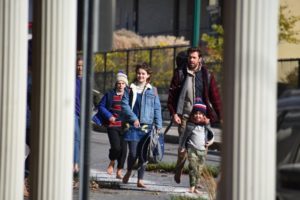
 I was originally planning to write about walking meditation today, but I’ve been dealing with a stubborn headache the past few days that’s kept me from doing the research needed to properly put that post together. It’s such a cool concept that I want to make sure I do it right. So we’ll save the walking meditation discussion for a later date and have a quick chat about winter holiday reads now instead.
I was originally planning to write about walking meditation today, but I’ve been dealing with a stubborn headache the past few days that’s kept me from doing the research needed to properly put that post together. It’s such a cool concept that I want to make sure I do it right. So we’ll save the walking meditation discussion for a later date and have a quick chat about winter holiday reads now instead.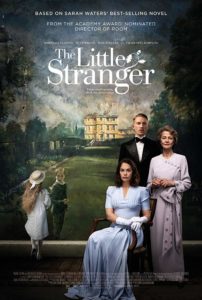 The Little Stranger is the 2018 film adaptation of a book by the same name written by Sarah Waters, one of my favourite authors. This story was set in 1948, and it followed about a year in the life of Dr. Faraday, a middle-aged man who was one of only two doctors in his rural community. He grew up in a low-income family at a time when the vast majority of children did not move into higher social classes as adults than the ones they were born into, so he was still adjusting to the changes that higher education had brought to his life when this mystery began.
The Little Stranger is the 2018 film adaptation of a book by the same name written by Sarah Waters, one of my favourite authors. This story was set in 1948, and it followed about a year in the life of Dr. Faraday, a middle-aged man who was one of only two doctors in his rural community. He grew up in a low-income family at a time when the vast majority of children did not move into higher social classes as adults than the ones they were born into, so he was still adjusting to the changes that higher education had brought to his life when this mystery began.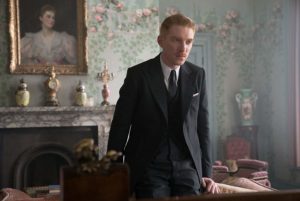
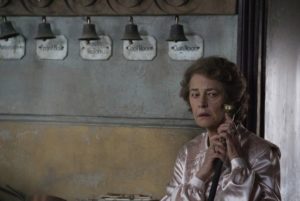
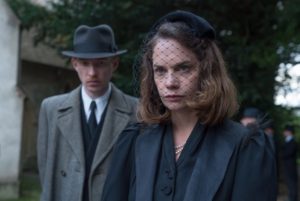
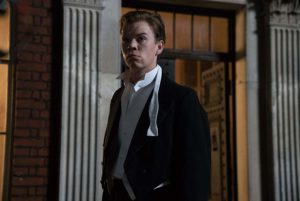
 Readers, we need to talk about the fact that there’s such a thing as science fiction and fantasy poetry that’s written about Christmas and other winter holidays.
Readers, we need to talk about the fact that there’s such a thing as science fiction and fantasy poetry that’s written about Christmas and other winter holidays.